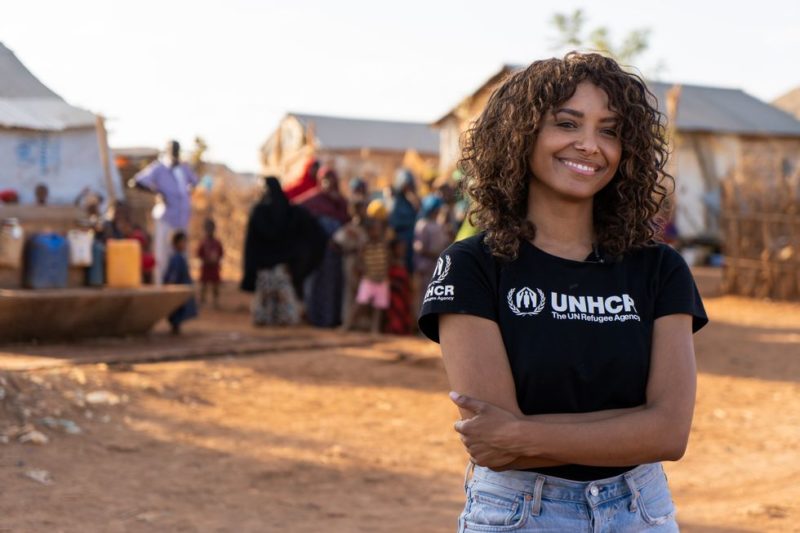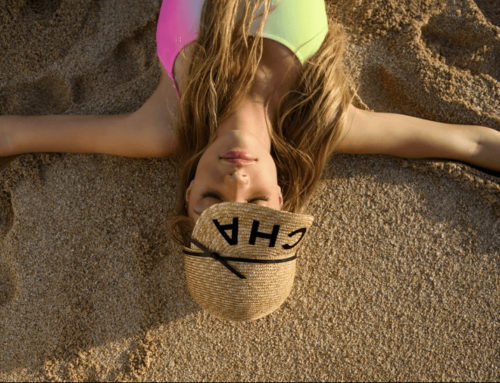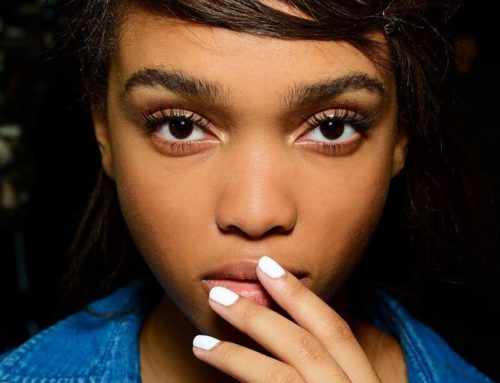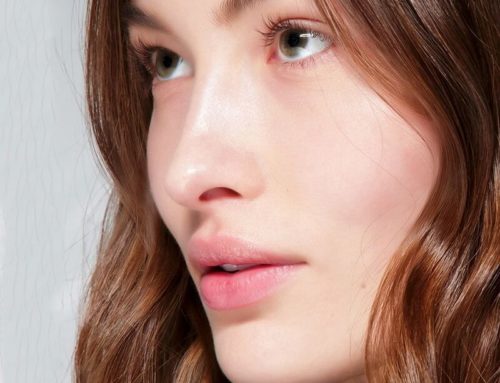Graham’s passion for human rights is perhaps rivaled only by her passion for animal rights (she’s a longtime vegan), but her fervor for both stems from a deep desire to speak for those who can’t. “I’m a storyteller because I didn’t feel like I had much of a voice growing up,” she says. “Animals don’t have a voice, and refugees don’t have a voice, so my whole journey in life has been to tell the stories of those that don’t have a platform like I, fortunately, do.”
That platform began to take shape at the start of Graham’s career. Her debut in the entertainment world included numerous commercial appearances (never forget the original the Fanta Fantanas), gigs dancing backup for megastars like Missy Elliott and Jamie Foxx, and roles as the leading lady in John Legend, Akon, and B2K’s music videos. In 2009, Graham got her biggest break yet, the role of teenage witch Bonnie Bennett in The Vampire Diaries. After the series ended, the actress continued to take Hollywood by storm, starring in How It Ends (alongside acting legend Forest Whitaker) and The Holiday Calendar.
But achievement for Graham means so much more than success in Hollywood. “When I was about 14, I remember seeing a photo of Brad Pitt and Angelina Jolie. I ripped it out of the magazine and hung it on my vision board,” she recalls fondly. But it wasn’t a picture of them on the red carpet. It was of their work with displaced populations. “It was my dream to work with refugees.” Now, Graham works in close conjunction with the United Nations High Commissioner for Refugees (UNHCR) and has been for several years.
Her own mixed heritage has been a significant motivator for her global philanthropy efforts: Her father hails from Liberia, her mother has roots in Eastern Europe and Israel, and she was born in Switzerland. As she’s grown in her understanding of her unique standing as citizen of the world, Graham’s perspective towards the plight of refugees has developed from sympathetic to empathetic, as identifies personally with the struggle of displacement. “People always ask how I found what I’m passionate about,” the 30-year-old says, “I say, ‘Well, first you look at who you are.'”
“I don’t see myself separate from a refugee,” she continues. “I’m an immigrant, not born in this country. My family is so close to having dealt with political strife and slavery on both sides that I feel like I have this deep need to support these communities and have always felt that, even as a little girl.”
In 2015, Graham’s dream came true with the help of her parents, who arranged for her to meet with the United Nations. A short time later, the actress was on her way to a camp in Jordan. That first solo mission fanned the flame of a childhood curiosity into a full-blown raging fire, and led to a number of international trips to visit displaced groups, including her most recent trip to Ethiopia.
Graham’s second time in the East African country (she visited with Black Eyed Peas in 2007) was starkly different from her first visit: “Over ten years later, when I returned [to Ethiopia], we took a tiny, tiny plane [paid for by] the World Food Program to the southernmost part of Ethiopia, where there was nothing.” Upon arriving in the small, isolated camp in Melkadida, she was was disquieted by what she saw: Small grass and mud huts, sometimes housing entire families, without working restrooms or even electricity in 100-degree heat.
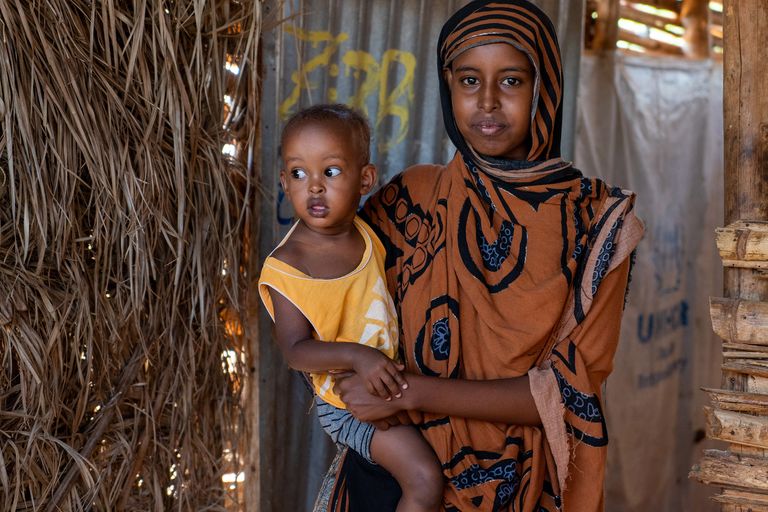
“Once we start seeing ourselves in each other, we’ll start to feel the constant need to bring awareness to each other’s struggles,” she says. This is the main reason that she is so intentional about prioritizing refugee relief efforts amidst all of the work projects that’s she’s juggling. “It’s so important to have an awareness of the world because these issues aren’t going away.”
Though many of us won’t ever be able to take the time to visit a refugee camp, we can still make a meaningful impact on these communities. Getting educated about international displacement is a great start. The UNHCR’s website is a great resource. You can also donate to the UNHCR directly via their site. Every dollar goes to ensuring that refugees have access to life essentials, including shelter, water, and food.
“These people need more awareness, and they need more support,” says Graham. “We need to find a way to build a better world together.”
This article was originally sourced from here.

